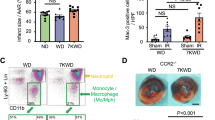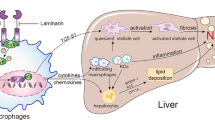Abstract
We investigated the effect of tilianin upon inducible nitric oxide synthesis in the plasma of low-density lipoprotein receptor knock-out (Ldlr-/-) mice fed with high cholesterol diet and in primary peritoneal macrophages of Ldlr-/- mice. High cholesterol diet induced nitric oxide production in the plasma of Ldlr-/- mice. Tilianin reduced the level of nitric oxide (NO) in plasma from Ldlr-/- mice induced by the high cholesterol diet. Tilianin also inhibited the NO production from the primary culture of peritoneal macrophages treated with lipopolysaccharide. The inhibition of NO production was caused by the suppression of inducible nitric oxide synthase (iNOS) gene expression in peritoneal macrophages isolated from Ldlr-/- mice. Moreover, tilianin inhibited the transcriptional activation of iNOS promoter that has NF-κ B binding element. Thus, these results provide the first evidence that tilianin inhibit iNOS expression and production of NO and may act as a potential anti-inflammatory agent.
Similar content being viewed by others
Article PDF
Author information
Authors and Affiliations
Rights and permissions
This is an Open Access article distributed under the terms of the Creative Commons Attribution Non-Commercial License (http://creativecommons.org/licenses/by-nc/3.0/) which permits unrestricted non-commercial use, distribution, and reproduction in any medium, provided the original work is properly cited.
About this article
Cite this article
Nam, KH., Choi, JH., Seo, YJ. et al. Inhibitory effects of tilianin on the expression of inducible nitric oxide synthase in low density lipoprotein receptor deficiency mice. Exp Mol Med 38, 445–452 (2006). https://doi.org/10.1038/emm.2006.52
Published:
Issue date:
DOI: https://doi.org/10.1038/emm.2006.52
Keywords
This article is cited by
-
Influence of light-emitting diodes on phenylpropanoid biosynthetic gene expression and phenylpropanoid accumulation in Agastache rugosa
Applied Biological Chemistry (2020)
-
Celastrus orbiculatus Thunb. Decreases Athero‐Susceptibility in Lipoproteins and the Aorta of Guinea Pigs Fed High Fat Diet
Lipids (2013)



